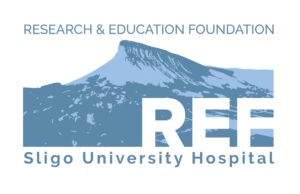Programme Director Undergraduate Nursing at St Angelas College, Sligo
Helen McGloin, PhD Nursing, MSc Physiology, PgDip Education, RGN, NBHWC Certified Health Coach, School of Nursing, Health Science and Disability Studies, St. Angelas College, Sligo.
Helen is a nurse lecturer with a long-standing interest in patient empowerment in chronic illness and the use of health and wellness coaching in supporting health behaviour change. Her PhD developed and explored the use of remote health coaching to support lifestyle change for patients with type 2 diabetes using the Medical Research Council framework for the development of complex interventions. She has recently led a team in publishing a Cochrane systematic review of psychological interventions for treating and preventing diabetic foot ulceration. Prior to this she was principal investigator in a HSE funded clinical effectiveness trial of telehealth for people with type 2 diabetes transitioning to insulin in partnership with the HSE Long Term Conditions group Donegal. Currently Helen is a panel member of the COMPARE-EU guideline development group which is using network meta-analysis to formulate recommendations for the most effective self-management interventions in type 2 diabetes. On the academic front Helen is the programme lead for the Postgraduate Diploma in Applied Health and Wellness Coaching at St Angelas College Sligo which facilitates healthcare practitioners to develop coaching knowledge and skills to support health and lifestyle behaviour change for people with chronic illness (http://www.nuigalway.ie/stangelas/courses/postgraduate-courses-stand-alonemodules/applied-health-and-wellness-coaching/). She is a National Board Certified Health and Wellness Coach (NBHWC) accredited by the United States Board of Medical examiners and has a number of years’ experience in online course delivery and remote health coaching via telephone, skype, Adobe Connect and Kaltura.
Abstract of Presentation:
TITLE: Telehealth in Type 2 Diabetes – key findings and recommendations KEYWORDS: Telehealth, remote patient monitoring, empowerment, self-management, type 2 diabetes LEARNING OBJECTIVES: Summarize outcomes of an evaluation study of telehealth in type 2 diabetes; Identify challenges and concerns in requirements to implement and evaluate telehealth ABSTRACT TEXT: Advances in technology in healthcare are enabling a data and information revolution. There is a lot of evidence around the utility and feasibility of telehealth in the remote monitoring and management of chronic illness to facilitate the ongoing tracking of and response to clinical variables. The desired outcome is enhanced patient confidence and skills to manage the physical, emotional, and social impacts of diabetes in their daily lives. Patients who feel empowered by their health care practitioner develop a greater sense of self-control, which may lead to better glycaemic control. A lack of clarity on what constitutes empowerment in the electronic health context means that evaluating patient empowerment associated with eHealth technology is challenging. There are challenges and hurdles in the early stages of incorporating technology into clinical practice with some practitioners liking the experience to a data ‘Tsunami’ and reporting issues around integrating technology with current care delivery. This presentation will discuss the implementation and evaluation of telehealth in a type 2 diabetes population transitioning to insulin therapy in the Northwest of Ireland. The key practice, policy, and research recommendations from the study will be discussed. The learning from this study will be related to the rapid move to telehealth for supporting people with type 2 diabetes during COVID-19 and the learning that can now occur through reflection on experience or through further research.
